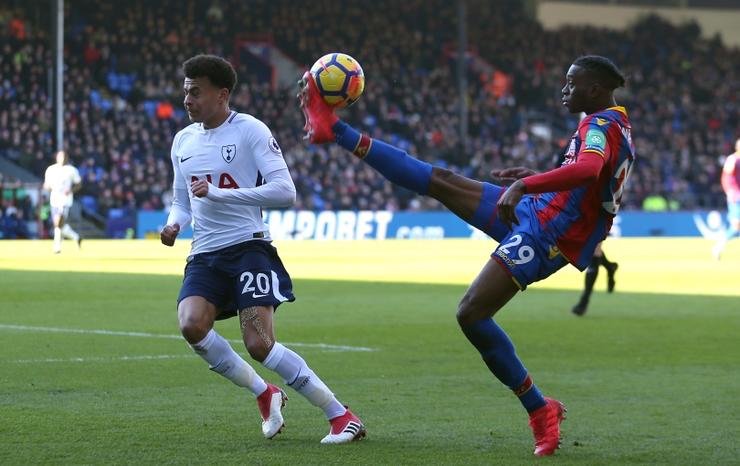Why Crystal Palace's 'tough place to go' tag is an absolute myth
That old, lazy adage just isn't true: the Eagles’ form at Selhurst Park has been poor ever since their return to the Premier League in 2013. What the heck is going on?
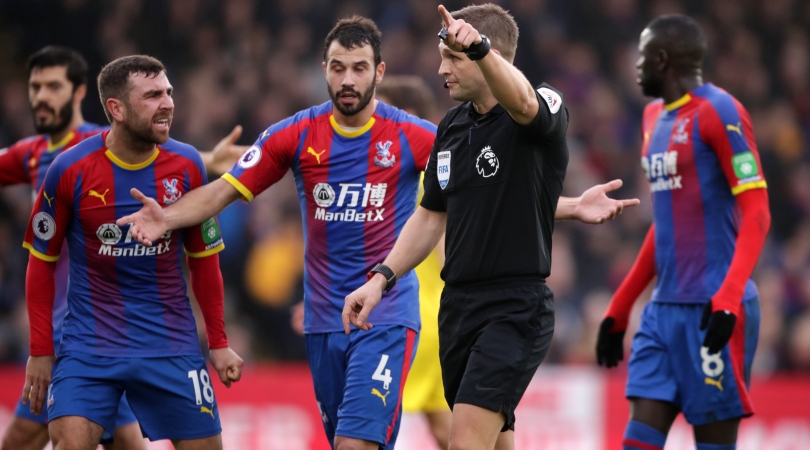
It wasn’t the best timing. Moments after Saturday’s 2-1 defeat by bitter rivals Brighton, Crystal Palace announced that season tickets for the 2019/20 campaign were soon to go on sale. If it wasn’t for the inherent loyalty of football supporters, business would surely be slow.
Selhurst Park may boast one of the Premier League’s most vibrant atmospheres, but over the last few seasons, the cheers of jubilant away fans have become as prominent a part of the matchday soundtrack as Glad All Over and the Holmesdale Fanatics’ incessant drumming.
There’s no falser cliché in the English game than that which states Selhurst is a tough place to go. Only Huddersfield have collected fewer points than Palace in front of their own fans this season, and Tottenham – in very different circumstances – are the only other team who have collected more points on the road than at home.
Saturday’s reverse against Brighton was the eighth time Roy Hodgson’s side have succumbed to defeat on their own patch in 2018/19, while a tally of 11 home goals is comfortably the second-worst return in the division. Even more damning is the fact that just six of those have been scored by a Palace player from open play, the first of which didn’t arrive until December.
A running problem
This isn’t a one-off either. In each season since 2013/14, when Tony Pulis led the south Londoners to safety in their first campaign back in the Premier League, Palace have finished higher up the away table than the home one. Neil Warnock, Alan Pardew, Sam Allardyce, Frank de Boer and Hodgson have all occupied the hot seat in that time, yet Palace’s record at Selhurst has remained stubbornly substandard.
Convincing explanations for the phenomenon of home advantage have always been difficult to come by, but there’s no doubt that it exists even at the highest level. In 2017/18, 45.5% of Premier League games ended in home wins – significantly more than both away victories (28.4%) and draws (26.1%). Whether it’s because of pitch dimensions, minimal travel time, the backing of a partisan crowd or general home comforts, Premier League clubs tend to perform better when they’re playing at their own stadium.
Get FourFourTwo Newsletter
The best features, fun and footballing quizzes, straight to your inbox every week.
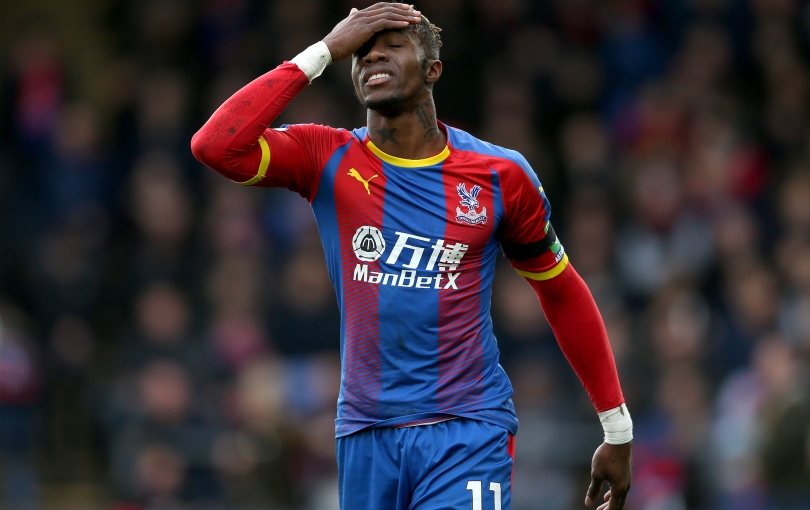
Small pitch, big problems
It may be lacking in padded seats and VIP cheese rooms, but Selhurst Park has many of the qualities associated with a footballing fortress. The pitch is one of the smallest in the league and the compact nature of the ground’s layout adds to the feeling of tightness and suffocation, while the club’s fans have long been renowned for their boisterous backing of the team. Yet although all the necessary ingredients are present, Palace are yet to find the right recipe.
The most obvious reason for the atypical discrepancy between the Eagles’ home and away records concerns their favoured style of play. Ever since Dougie Freedman was handed the reins in 2011, Palace have primarily been a team that looks to sit deep, cede possession and break out at speed through a pair of pacey wide men. There were brief attempts to move away from that model under Pardew and De Boer, but it didn’t take long for Palace to return to their counter-attacking roots on either occasion.
With that in mind, Selhurst’s small pitch is perhaps more of a hindrance than a help. Visiting teams, aware of Palace’s struggles in south London, usually pack men behind the ball and restrict space behind their backline. Wilfried Zaha and Andros Townsend are therefore forced to do their work in tighter areas, which renders them less effective; only two of the wingers’ combined 12 goals this season have come at home. Opponents often funnel Palace’s attacks through the middle, where a lack of invention has been their Achilles heel for several years. This, combined with a psychological dimension which had led to the players feeling inhibited when playing on home turf, means the Eagles are a very different team at Selhurst to the one which regularly produces some exhilarating football at other locations.
Keeping cautious
Hodgson’s tactics also play a part. The former England manager has a tendency towards caution, as evidenced by the omission of Max Meyer against Brighton on Saturday. The ex-Schalke schemer is the one Palace midfielder who can make things happen in the final third, but Hodgson favoured an engine-room trio of Luka Milivojevic, James McArthur and Jeff Schlupp, none of whom are likely to prise open a dogged defence with an eye-of-the-needle pass. Meyer didn’t come on until the 77th minute, with Hodgson’s reluctance to make early substitutions when things aren’t going well add another potential explanation for Palace’s toils on home soil.
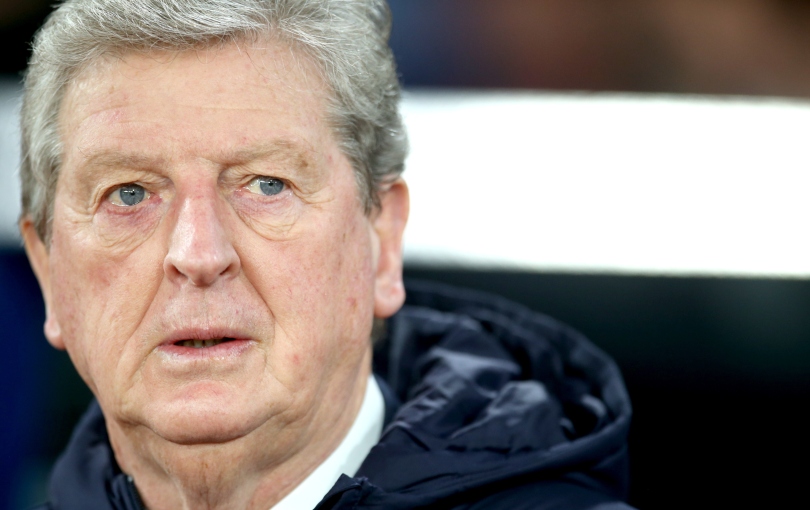
In fairness to Hodgson, there have been multiple occasions throughout his tenure when poor finishing has cost the Eagles dearly. In each of the three home matches they've won this season, Palace opened the scoring and went on to keep a clean sheet. In 11 of their 12 other encounters, their opponents broke the deadlock. Scoring the first goal forces visiting sides to push higher up the pitch and in turn allows Hodgson’s side to adopt their preferred counter-attacking approach, which is why the Croydon native has been so frustrated by missed opportunities throughout the campaign.
Set-pieces provide an alternative route to goal and can cover for open-play shortcomings, but Palace have also been disappointing in this regard. Milivojevic is a terrific penalty taker and has scored eight times from the spot this term – more than any other player in the top flight – but the Eagles rank bottom of the league for goals scored (four) from corners and free-kicks. James Tomkins and (when he plays) Christian Benteke are both excellent in the air, but mediocre delivery and a lack of inventive routines mean Palace aren’t effective as they could be from dead-ball situations.
Déjà vu... again?
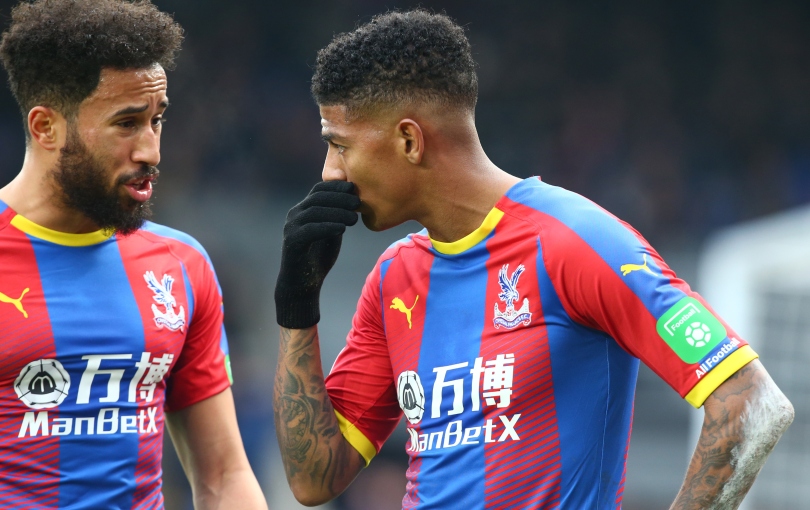
“It’s an issue when you don't win at home and the expectations are mounting all the time," Hodgson told Sky Sports after Saturday’s loss.
“We aren't as good at dealing with those expectations as we'd like to be. It's a déjà vu situation with the games like we played here and not won - either losing by the odd goal or drawing. It's not because the team have been outplayed or come across an opponent who has been too good for us. It's because we've not been able to turn goalscoring opportunities into goals.”
A five-point cushion above the bottom three means Hodgson’s charges are unlikely to go down, but this is another season in which Palace have failed to steer clear of the relegation battle. Until they sort out their Selhurst Park woes, a place in the top half will surely be beyond them.
NOW READ… What’s it like to… have your career ruined by injuries?
Greg Lea is a freelance football journalist who's filled in wherever FourFourTwo needs him since 2014. He became a Crystal Palace fan after watching a 1-0 loss to Port Vale in 1998, and once got on the scoresheet in a primary school game against Wilfried Zaha's Whitehorse Manor (an own goal in an 8-0 defeat).
